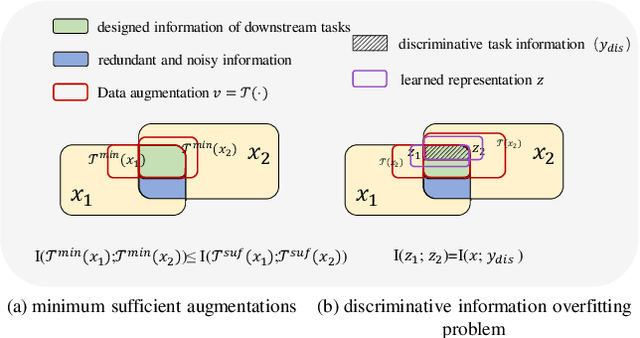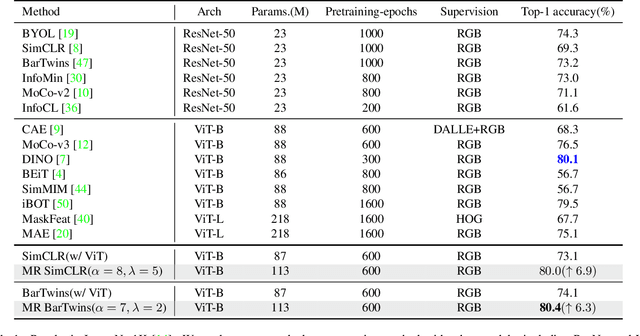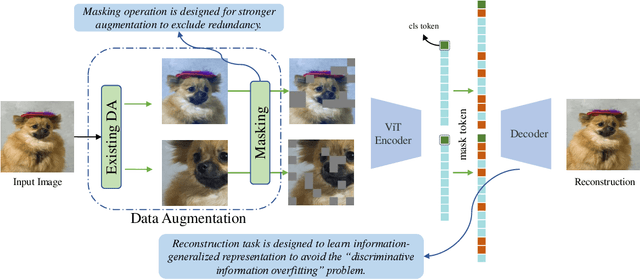Masked Reconstruction Contrastive Learning with Information Bottleneck Principle
Paper and Code
Nov 15, 2022



Contrastive learning (CL) has shown great power in self-supervised learning due to its ability to capture insight correlations among large-scale data. Current CL models are biased to learn only the ability to discriminate positive and negative pairs due to the discriminative task setting. However, this bias would lead to ignoring its sufficiency for other downstream tasks, which we call the discriminative information overfitting problem. In this paper, we propose to tackle the above problems from the aspect of the Information Bottleneck (IB) principle, further pushing forward the frontier of CL. Specifically, we present a new perspective that CL is an instantiation of the IB principle, including information compression and expression. We theoretically analyze the optimal information situation and demonstrate that minimum sufficient augmentation and information-generalized representation are the optimal requirements for achieving maximum compression and generalizability to downstream tasks. Therefore, we propose the Masked Reconstruction Contrastive Learning~(MRCL) model to improve CL models. For implementation in practice, MRCL utilizes the masking operation for stronger augmentation, further eliminating redundant and noisy information. In order to alleviate the discriminative information overfitting problem effectively, we employ the reconstruction task to regularize the discriminative task. We conduct comprehensive experiments and show the superiority of the proposed model on multiple tasks, including image classification, semantic segmentation and objective detection.
 Add to Chrome
Add to Chrome Add to Firefox
Add to Firefox Add to Edge
Add to Edge